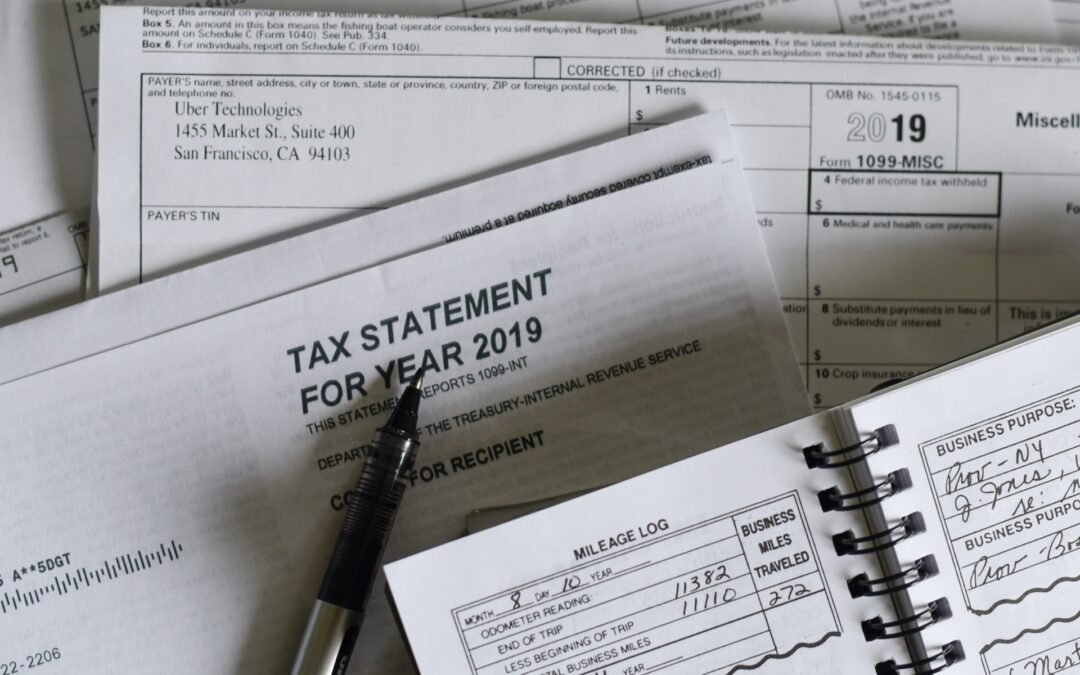Business owners may find it hard to manage their business finances. Hiring a financial advisor is important because they can help you manage the financial aspects of the business. If you are searching for a financial advisor that can help with your business accounting, you came to the right place. Here at Savvy Financials, we will be sharing with you an article discussing business accounting tips for business owners. If you think this article will be beneficial to you and your company, we encourage you to keep scrolling below to find out.
What is business accounting?
Business accounting is the process done to gather and analyze the financial data of a specific business. It also includes the different types of transactions and financial statements that are essential for the business. Business owners will benefit from business accounting as it helps monitor their assets, liabilities, inventory, and other important records, which will help with the securing of shareholders, investors, and keeping the company assets protected from theft. It can also be useful for finding ways to improve and grow the company. One of the main aspects of small business accounting is to include bookkeeping, creating and filing tax returns, and preparing drafts of financial reports.
Business accounting plays an important role in managing the financial aspects of the business which can help with the financial decisions for your company. A lot of business owners do the accounting aspect on their own to cut down costs, but if you want to play it safe, you must hire a reliable financial company like Savvy Financials so they can help with the accounting aspect of your business.
What is tax accounting?
It is essential for any business as it helps companies to comply with the state tax laws. A tax accountant will file federal and state income tax returns and help the business to stay out of trouble with the tax laws of the state.
What is the importance of accounting in businesses?
Businesses deal with tax accounting since they have to deal with records of different transactions and other aspects that are important for the financial matters of the company. Keeping track of the income of the business can help you manage it easily. Another important reason why accounting is essential for a business is that it can help with the decision-making aspects of the company and it is necessary when balancing the cash flow, which helps keep the business afloat.
Businesses need accounting because, without it, they can easily fail. The accounting team assigned to keep the company’s records and taking note of the progress of every business is important. It can also help with the evaluation of the company’s current status and performance in the market.
If the business owner does not have a background in accounting, it will be difficult for them to understand its process. It is important to hire a reliable financial company to take care of the accounting aspects of the business so that they will know if the business is profitable or not. As a new business owner, you must know if the business is making profits or not. The accounting aspect of the business can be a gauge that can help track the performance of the business in the market.
This can also help determine the future of the business, as well as create a budget that will help your business reach its objectives and goals. The financial statements produced by accountants will help you know the status of the business and let you understand its situation. In case any problems or issues were detected, then they can help you devise a solution to deal with them and allow you to avoid them in the future.
Since tax laws are changing from time to time, having a financial company to help your business keep up to date with the updates and new trends is important. This way, your company will always be compliant with the laws and avoid any problems in the future. Businesses can easily fail and be in trouble with the law, so having an accountant to help with your finances will help drive its success.

What are the different business accounting basics?
There are plenty of business accounting basics that must be understood to make sure that the business operation of your company will run smoothly. Check out the following accounting terms and principles that play important roles in the accounting aspect of the business.
- Accounts payable – This is the money that your business owes to your creditors and vendors. This is considered a liability because your business is legally obligated to pay and settle all of them.
- Accounts receivable – This is the money that your customers have to pay you for the products or services that your company has provided them. It is considered a creditable asset because they are legally obligated to pay and settle them.
- Accrual basis accounting – This is an accounting method wherein businesses will recognize the expenses and revenues made during a sale of a product or service.
- Assets – This term pertains to everything the company owns that has value. Some examples of these are accounts receivable, bank accounts, furniture, equipment, inventory, and real estate.
- Balance sheet – This is a financial document that contains the company’s financial status at the end of a specific time or financial period. This includes the assets, liabilities, and equity of the company’s shareholders.

- Cash basis accounting – This is an accounting method wherein businesses will recognize a sale they have made from a service or product after the payment has been received on their end.
- Double-entry bookkeeping – This is a bookkeeping method done by accountants wherein they create two entries for each transaction that has been made. The two sides of the process must be equal, the first side lists the debits and the other side will list the credits.
- Liabilities – This term pertains to anything that is considered as debt or financial obligation to a company as a result of previous transactions. This includes the accounts payable, income taxes, loans, and wages of the company or business.
- Loss and profit statement – This is also known as the company’s expenses, income statement, net profits, and reports earnings that have been accrued at a certain period.
What are the different business accounting tasks?
Examine cash position
Cash is the fuel that helps your business to run. Make sure that you will not run out of it. Before opening a business daily, you must check how much cash is on hand. You must do the necessary steps to know how much you can expect to acquire and how much must be paid during the coming days, weeks, and months.
Record transactions
Every transaction made by the company every day or every week must be recorded such as billing of customers, receiving payables from clients, or paying vendors. The transactions must be recorded manually or electronically. It can be placed in a spreadsheet, while smaller businesses can use accounting software such as QuickBooks.
Document and file all receipts
The invoices that have been sent to clients, the cash receipts, and cash payments must be kept for future reference. If dealing with a lot of vendors, an alphabetical file can be useful for easy access whenever needed. A payroll file must be sorted per date and a bank statement must be filed for each month. You must organize all the files and sort all the receipts accordingly. There are accounting software programs that can be used to scan paper receipts so you can have electronic file copies of every receipt.

Check all unpaid bills from vendors
A business must create a folder for every unpaid vendor or supplier that is pending to be paid. A record must be kept for each vendor including all the amounts due, billing date, and payment due dates. You must check with all the vendors if they offer discounts for those who make early payments so you can do the necessary steps accordingly.
Settle payments for vendors
Check the accounts payable and prepare your funds to pay the vendors or suppliers to prevent any late fees or penalty fees. Check if there are vendors that are willing to extend the payment dates. When paying the vendors, you must organize copies of invoices that have been received and sent using accounting software so you can track everything during tax time.
Prepare and send invoices on time
Create and send all invoices on time. The invoices must be marked with “Net 30” which means they will be due within 30 days. Avoid forgetting to place a due date on the invoice as it will be difficult to predict the monthly revenue of the company.
Check and examine the projected cash flow
The cash flow of a business must be managed properly, especially during the first year of starting the business. Make sure to check all the cash that will be needed in the upcoming days, weeks, and months for you to reserve cash to pay invoices, employees, and vendors. This can be done by having a cash flow statement. This statement can include the current cash position, expected upcoming cash payments, and cash receipts during the financial period.
If you need help with business accounting from a company that offers financial services, you must choose Savvy Financials. If you want to know more information about the services that we are currently offering please send us a message by filling up this contact form here.
If you are looking for a financial advisor to help with your business accounting, Savvy Financials is worth checking out. Our company is offering different financial services such as accounting, bookkeeping, taxation, etc. If you want to know more information about our services please contact us. Make sure to choose a reputable company like Savvy Financials to help with your company’s financial needs. We are looking forward to hearing from you soon!

